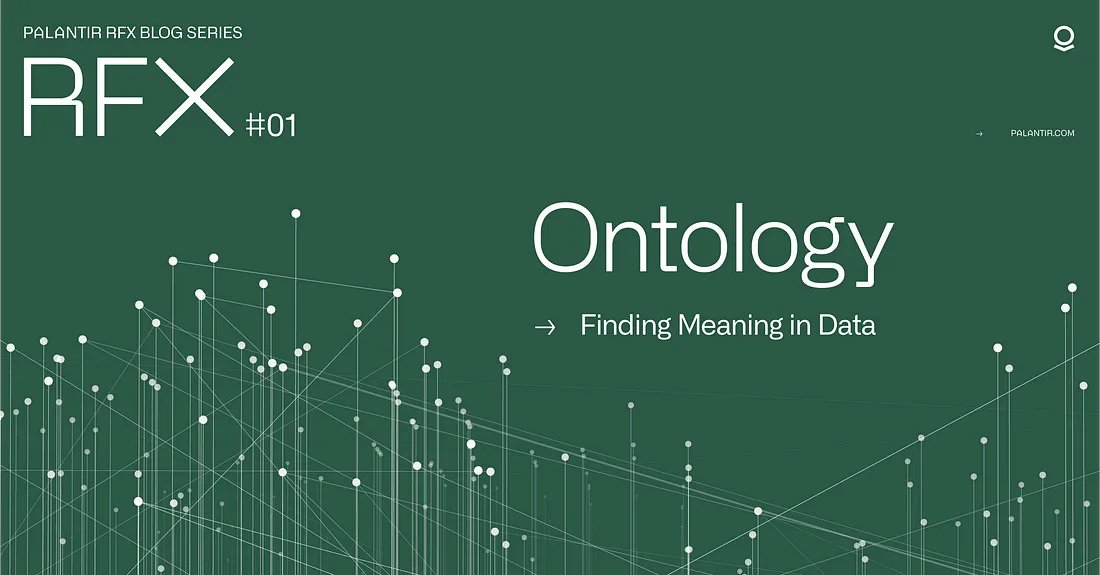[GUEST ACCESS MODE: Data is scrambled or limited to provide examples. Make requests using your API key to unlock full data. Check https://lunarcrush.ai/auth for authentication information.]  Trade Whisperer [@TradexWhisperer](/creator/twitter/TradexWhisperer) on x 15.1K followers Created: 2025-07-14 03:54:59 UTC $PLTR What is an Ontology? Data ecosystems are defined by how they handle data within the system. While questions about data often center around movement (Where does the data come from? Where does it go? What does it do when it gets there? Who accesses the data and how?), the more important (though overlooked) question about data has to do with meaning: what does the data mean? All data within the system — raw data, processed data, operational data, and any data outputs from computational models — is relevant to answering this question. It’s important to note that data does not have inherent meaning; rather, meaning is layered onto the data by users of the data ecosystem. This may seem like a philosophical concern, but it is actually one of the most practical considerations of any effective data system. An ontology refers to the systematic mapping of data to meaningful semantic concepts. Effective ontologies exist outside the data itself to establish a framework that empowers data integration, application building, user collaboration, and many other functions. This effective ontology recognizes that data is agnostic. While data may inform how the ontology is structured, the ontology itself should function regardless of the data present in the ecosystem. To explain why this is the case, it is necessary to further unpack what an ontology does. Full Article:  XXXXXX engagements  **Related Topics** [palantir](/topic/palantir) [coins analytics](/topic/coins-analytics) [$pltr](/topic/$pltr) [stocks technology](/topic/stocks-technology) [Post Link](https://x.com/TradexWhisperer/status/1944606525605269671)
[GUEST ACCESS MODE: Data is scrambled or limited to provide examples. Make requests using your API key to unlock full data. Check https://lunarcrush.ai/auth for authentication information.]
 Trade Whisperer @TradexWhisperer on x 15.1K followers
Created: 2025-07-14 03:54:59 UTC
Trade Whisperer @TradexWhisperer on x 15.1K followers
Created: 2025-07-14 03:54:59 UTC
$PLTR What is an Ontology?
Data ecosystems are defined by how they handle data within the system. While questions about data often center around movement (Where does the data come from? Where does it go? What does it do when it gets there? Who accesses the data and how?), the more important (though overlooked) question about data has to do with meaning: what does the data mean?
All data within the system — raw data, processed data, operational data, and any data outputs from computational models — is relevant to answering this question. It’s important to note that data does not have inherent meaning; rather, meaning is layered onto the data by users of the data ecosystem. This may seem like a philosophical concern, but it is actually one of the most practical considerations of any effective data system.
An ontology refers to the systematic mapping of data to meaningful semantic concepts. Effective ontologies exist outside the data itself to establish a framework that empowers data integration, application building, user collaboration, and many other functions. This effective ontology recognizes that data is agnostic. While data may inform how the ontology is structured, the ontology itself should function regardless of the data present in the ecosystem. To explain why this is the case, it is necessary to further unpack what an ontology does.
Full Article:

XXXXXX engagements
Related Topics palantir coins analytics $pltr stocks technology